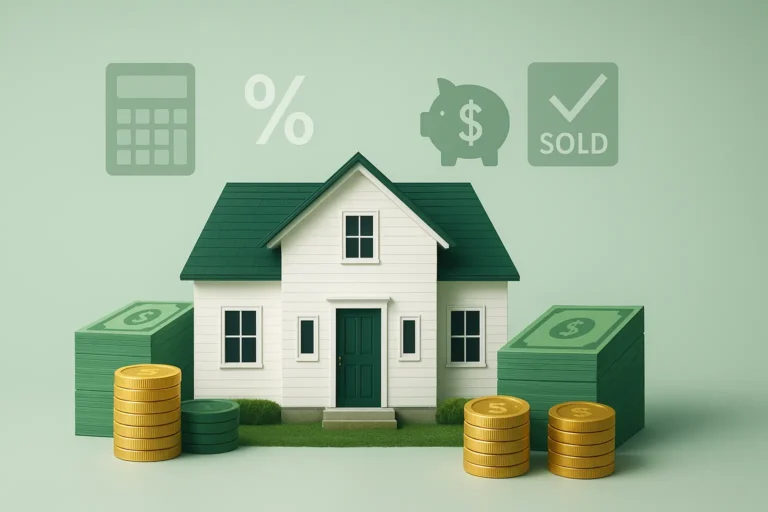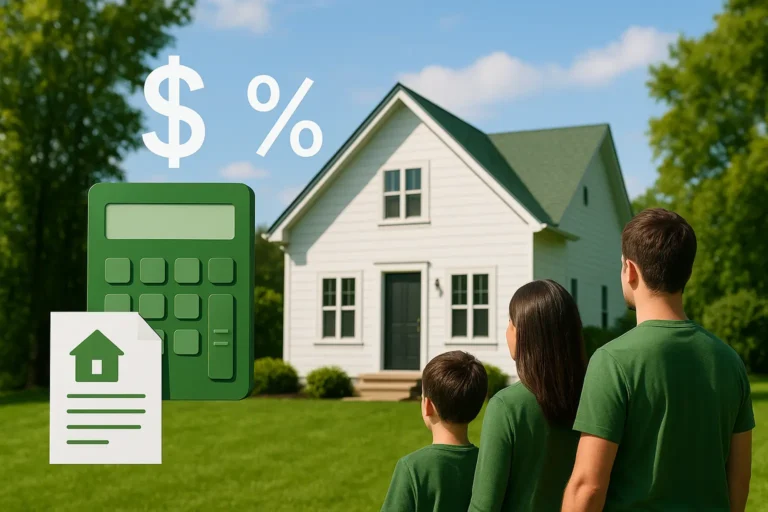
Reverse Mortgage Calculator: Complete Guide for Homeowners
Estimate loan amounts and understand reverse mortgages without sharing personal information
Reverse Mortgage Calculator helps Canadian and U.S. homeowners estimate potential loan amounts, payment options, and long-term impacts. Perfect for those planning retirement or managing home equity — no signup, no credit check, and 100% private.
A reverse mortgage allows homeowners aged 55+ (Canada) or 62+ (U.S.) to convert part of their home equity into cash—without selling the property or making monthly mortgage payments. Unlike traditional loans, repayment is deferred until the home is sold, the borrower moves out, or passes away.
This guide explains how reverse mortgages work, who qualifies, and how to estimate your potential proceeds using our secure, no-personal-information tool. We also compare it to alternatives like a HELOC calculator, home equity calculator, and mortgage payoff calculator to help you make informed decisions.
How Our Reverse Mortgage Calculator Works
Our tool is designed for clarity and privacy. You'll never be asked for your name, address, credit score, or SIN/SSN. Instead, you provide only the financial inputs lenders consider:
Home Value
Current market value of your property
Borrower Age
The youngest homeowner's age (affects loan amount)
Mortgage Balance
Any existing loan to be paid off
Based on these inputs, the calculator estimates your maximum loan amount, net proceeds after fees, and projected balance over time.
Why Use a Reverse Mortgage Calculator with No Personal Information?
Many online tools require sensitive data before showing results. Ours doesn't—because early-stage research should be safe and anonymous. Whether you're exploring options for yourself or a family member, you can:
- Compare scenarios without pressure
- Understand how age and home value impact eligibility
- See how fees and interest affect long-term equity
- Decide if a reverse mortgage aligns with your retirement plan
This approach aligns with privacy-first principles—especially important for seniors and vulnerable populations.
Reverse Mortgage vs. Other Home Equity Options
Before choosing a reverse mortgage, consider alternatives that may better suit your needs:
HELOC Calculator
A HELOC (Home Equity Line of Credit) offers flexible borrowing with interest-only payments. Best for short-term needs and disciplined borrowers with steady income.
Home Equity Calculator
Shows how much equity you've built and how much you could borrow via cash-out refinance or HELOC. Ideal for understanding your financial position.
Mortgage Payoff Calculator
Shows how extra payments reduce interest and shorten your loan term. Better path if you want to eliminate debt before retirement.
Who Qualifies for a Reverse Mortgage?
Eligibility depends on your country:
- Canada: Homeowners aged 55+; property must be primary residence; sufficient equity (typically 50%+)
- United States: Borrowers aged 62+; home must be primary residence; meet financial assessment requirements
Unlike traditional mortgages, credit score and income are less critical—but you must keep up with property taxes, insurance, and maintenance.
Key Considerations Before Proceeding
While a reverse mortgage provides immediate cash, it reduces the equity you leave to heirs and accrues compound interest over time. Always:
- Consult a financial advisor or mortgage broker
- Review all fees (origination, servicing, closing)
- Understand the impact on government benefits
- Explore counseling options (required in the U.S., recommended in Canada)
Ready to Explore Your Reverse Mortgage Options?
Use our private reverse mortgage calculator to estimate your potential loan amount without sharing personal information.
Try Our Reverse Mortgage CalculatorFrequently Asked Questions
Is a reverse mortgage calculator accurate?
Our tool provides estimates based on standard lender formulas and publicly available rate assumptions. Actual offers may vary by provider, location, and market conditions.
Do I need to provide personal information to use this calculator?
No. Our reverse mortgage calculator no personal information policy ensures your privacy. We never collect names, addresses, SIN/SSN, or financial account details.
Can I use this tool if I still have a mortgage?
Yes. Enter your current balance—the reverse mortgage will first pay off your existing loan, and you'll receive the remaining proceeds.
How is a reverse mortgage different from a HELOC?
A HELOC requires monthly interest payments and has a draw period. A reverse mortgage has no monthly payments, but interest compounds over time. Use our HELOC calculator and reverse mortgage calculator to compare both.
Disclaimer: This calculator and guide are for educational purposes only. Results are estimates based on user inputs and general market assumptions. Reverse mortgage rules, rates, and eligibility vary by lender, province, and country. This content does not constitute financial, legal, or tax advice. Always consult a licensed mortgage professional or financial advisor before making decisions.



